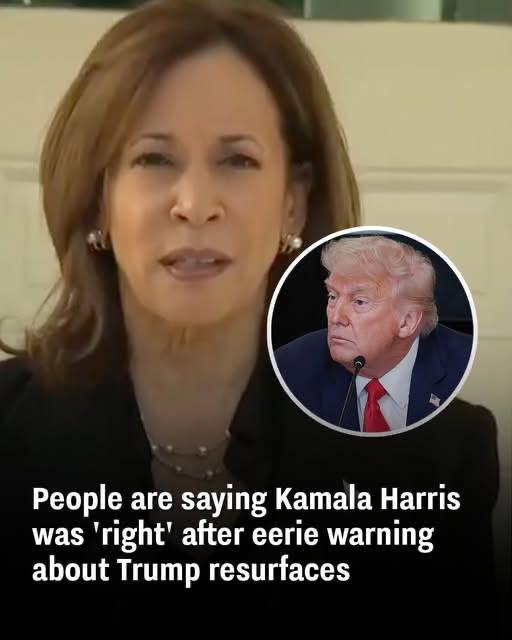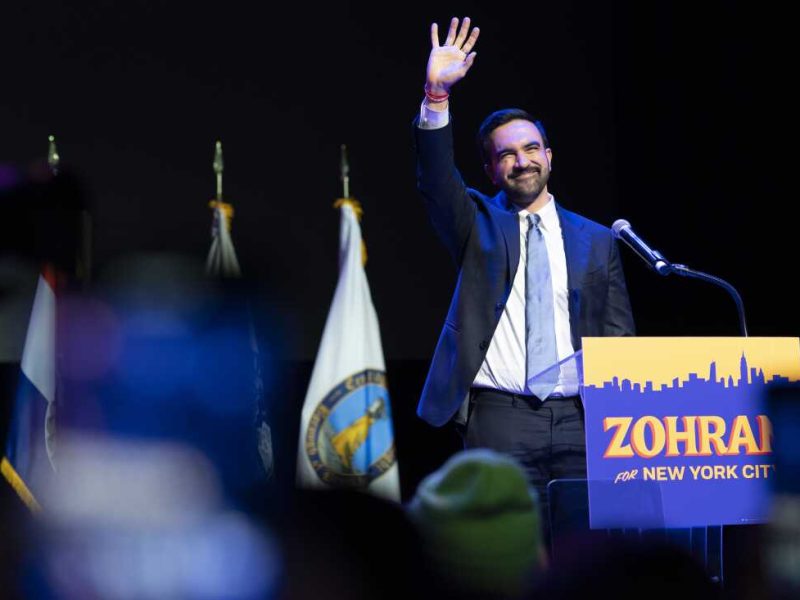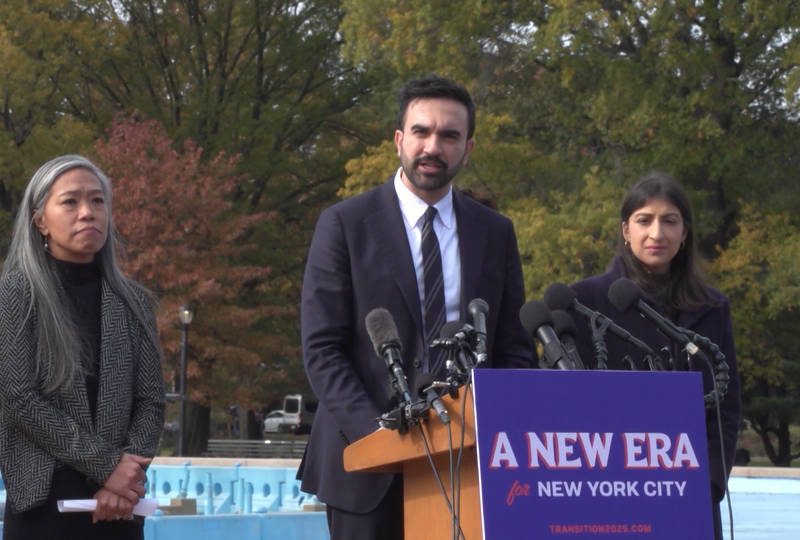An old video clip of Vice President Kamala Harris has resurfaced online and ignited a storm of commentary across social media and political circles. In the clip, recorded during the 2020 campaign season, Harris laid out three concerns about Donald Trump’s approach to power, particularly his relationship with the military and his use of presidential authority. At the time, many critics brushed her words aside as campaign rhetoric. Today, however, the footage is being reexamined in light of recent developments that seem to echo her warnings with eerie precision.
The video, shared millions of times within days, shows Harris speaking with a calm but urgent tone. She argues that the real danger of unchecked executive authority lies not in a single decision, but in the cumulative erosion of democratic norms. “The commander-in-chief should be someone who respects independent judgment from military leaders, not someone who demands personal loyalty,” Harris said. She added two other concerns: that labeling political opponents as existential threats undermines democracy itself, and that the possibility of deploying the U.S. military against American citizens should never be normalized.
At the time, those comments drew mixed reactions. Trump supporters dismissed them as partisan attacks designed to stir fear, while some independents considered them too hypothetical to take seriously. But as events have unfolded in recent months, Harris’s words are being replayed with new resonance.
A Shift from Hypothetical to Reality
The spark that brought the video back into circulation was the rapid deployment of federal troops to Los Angeles earlier this summer. The deployment, carried out in response to escalating protests, was one of the largest domestic troop mobilizations in decades. Images of armored vehicles rolling down city streets and troops stationed in residential neighborhoods spread quickly online, prompting fierce debate about whether the federal response was proportionate—or whether it crossed a dangerous line into authoritarian overreach.
It was precisely this type of scenario Harris had warned about. In the resurfaced clip, she emphasized that using military power to quell domestic dissent would erode trust between citizens and their government. Critics of the Los Angeles deployment seized on her words, arguing that what was once framed as a hypothetical danger had now become a tangible reality.
“This isn’t just politics anymore,” said one political analyst on MSNBC. “Harris essentially predicted the dynamic we’re seeing now. She warned that loyalty tests, fearmongering, and the misuse of military power could destabilize democratic norms. Whether you support her or not, it’s hard to deny the parallels.”
The Loyalty Question
Harris’s first point—about personal loyalty—was aimed at Trump’s often fraught relationship with military leadership. Throughout his presidency, Trump was known to clash with generals and defense officials who resisted politicized decision-making. The concern, Harris argued, was that a president who valued loyalty over independent judgment would make decisions based not on national interest, but on personal interest.
That issue has resurfaced in recent weeks, as several former military leaders revealed they had been pressured to publicly back controversial presidential directives. While no laws were broken, the revelations fueled concerns that the military was being politicized in ways that could compromise its integrity. The Harris clip has been used as a reference point in these discussions, with many observers noting that her warnings seemed designed for exactly this moment.
Demonizing Opponents
The second issue Harris raised—framing political opponents as existential threats—has also come under renewed scrutiny. In the clip, she cautioned against the danger of rhetoric that paints fellow Americans not simply as rivals, but as enemies of the nation. “That kind of language doesn’t just divide us,” she said. “It justifies extraordinary measures against ordinary political disagreement.”
In the wake of recent political rallies where opponents were described in extreme terms, Harris’s words are being hailed by her supporters as prescient. Critics argue that this rhetoric lays the groundwork for further polarization, potentially justifying actions that go beyond the bounds of healthy democratic competition.
Military Force at Home
Harris’s third concern—the use of the U.S. military against American citizens—was the most controversial at the time she voiced it. Many dismissed it outright, saying the scenario was unrealistic in modern America. Yet the Los Angeles deployment changed that perception dramatically.
The debate now centers on whether the move was an appropriate response to unrest or whether it represented an abuse of power. Civil liberties groups have pointed to Harris’s warning as a reminder of the slippery slope such actions create. For them, the resurfaced clip is more than political nostalgia; it is a call to examine how easily democratic boundaries can blur when fear and power intersect.
Supporters See Validation
For Harris’s supporters, the viral video has become a vindication of her judgment and foresight. “This is why she resonates with so many,” said a Democratic strategist. “She has a way of identifying the core issues that get lost in the noise. People mocked her concerns five years ago, but now they look like a road map.”
The resurgence of the clip has also bolstered Harris’s image as a guardian of constitutional balance. With debates about executive authority intensifying, her reputation as someone who articulated these risks early has only strengthened.
Critics Call It Opportunism
Not everyone agrees. Critics argue that Harris’s comments, then and now, are simply part of a long-running effort to cast Trump as dangerous. They say the comparison between her warnings and recent events is overstated, pointing out that presidents of both parties have deployed troops domestically under extraordinary circumstances.
“Every time there’s unrest, people scream authoritarianism,” one conservative commentator noted. “This is politics, plain and simple. Harris wasn’t predicting the future—she was rehearsing campaign talking points.”
A Larger Debate
Beyond partisan reactions, the resurfacing of Harris’s remarks has reignited a broader conversation about executive power in America. Where should the line be drawn between maintaining order and protecting civil liberties? How much authority should the president wield during crises? And most importantly, who ensures those powers are not abused?
Legal scholars argue that these questions are not new, but the speed and visibility of recent events have made them urgent again. “The Harris clip matters not just because of what she said,” one constitutional expert explained, “but because it reminds us how fragile the guardrails of democracy can be. They only work if we insist on them, no matter who’s in office.”
The Takeaway
In the end, the viral resurgence of Kamala Harris’s old warning is less about one politician and more about the enduring tension at the heart of American democracy: the balance between security and liberty, authority and accountability. Whether one views her comments as prophetic or opportunistic, their resonance today underscores a reality that cuts across party lines.
Democracy, Harris argued in the clip, is not self-sustaining. It requires vigilance, skepticism of unchecked power, and a willingness to confront uncomfortable truths. The conversation sparked by her resurfaced warning is proof that those lessons remain as vital as ever.


